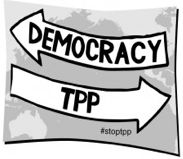THE VEIL: FLAG OF THE MUSLIM FAR RIGHT
An Interview with Marieme Helie Lucas
by Maryam Namazie, Fitnah
Marieme Helie Lucas is an Algerian sociologist and founder of the organizations Women Living Under Muslim Laws and Secularism is a Women’s Issue. In this interview, conducted by Iranian exiled feminist leader Maryam Namazie, she presents a provocative view of the controversy over the face-veil ban in France—an issue which has paradoxically seen Western progressives making common cause with Muslim conservatives, and Western conservatives purporting to act in the name of feminism. This interview is presented in the spirit of airing iconoclastic perspectives and broadening the scope of debate on an issue where conflicting definitions of civil liberties have created much confusion. —World War 4 Report



